When you’re buying food, do you care if it’s certified organic or not?
Have you ever thought much about what’s involved in a farmer becoming “certified organic”?
Maybe you’re growing food yourself, and have thought about getting organic certification.
From the outside, certification can seem overwhelming, bureaucratic, and expensive.
So we’re here to blow it wide open! Let’s have a look at the pros and cons of certification for both farmers and consumers.
Our organic journey
We’ve been certified organic since 2008, and are big supporters of certification. We have an organic certification visit from NASAA, our certifying body every year. We’ve written before about the process of being audited here, and our journey to organic certification here and here.
While it’s fantastic to grow and eat organic food, there are definitely pros and cons to organic certification.
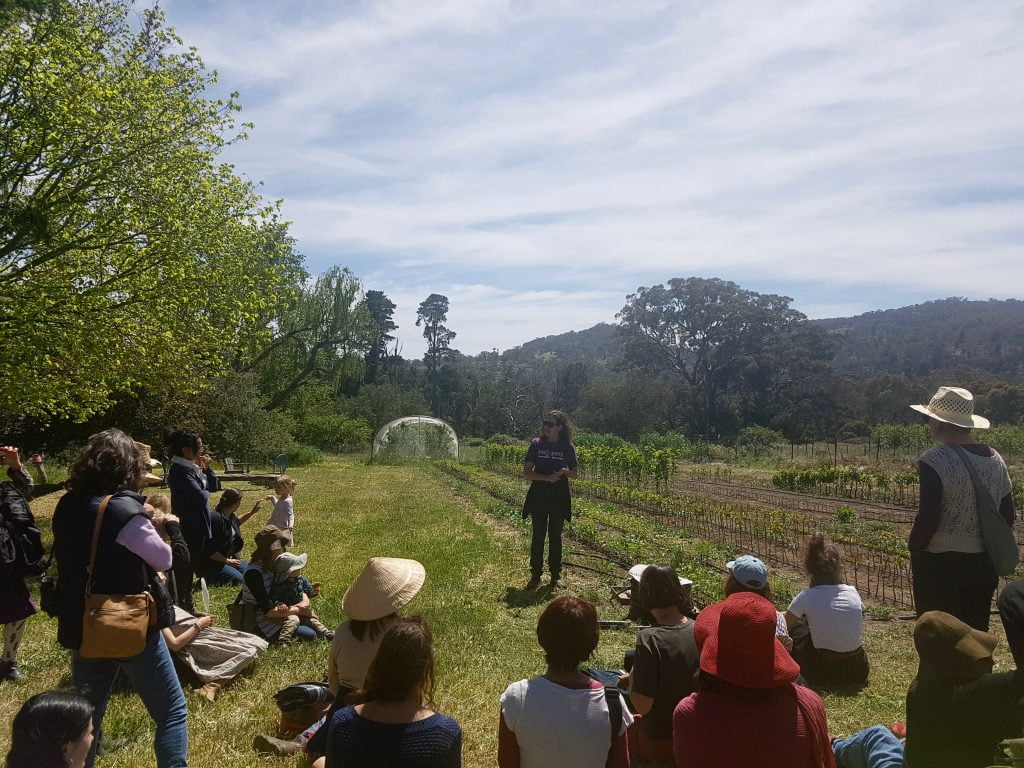
Is it worth getting certified organic for the farmer?
The answer will be different for each farmer.
It was a hot topic for us as we were setting up the Harcourt Organic Farming Co-op. Our member enterprises on the farm all run their own business, so we debated whether each enterprise would make their decision, or whether we would decide together.
Certification is a relatively big cost for a small business. It costs the co-op around $1000 each year to be part of the program. On top of that, we pay a levy on the combined value of our produce over $60,000.
The actual costs vary between different certifiers and the type of certification program you join. There are some programs designed for very small producers, or for exporters, for example.
“Organic” ended up in the name of the co-op, so it’s pretty clear that we decided to commit as a group. In fact, it’s now written into the leases for each enterprise.
One of the huge benefits of forming a co-op here on the farm is that we’ve been able to share the cost of certification. NASAA agreed to certify us as a single, multi-enterprise business. It makes certification much more affordable, which is a bonus for everyone’s viability.
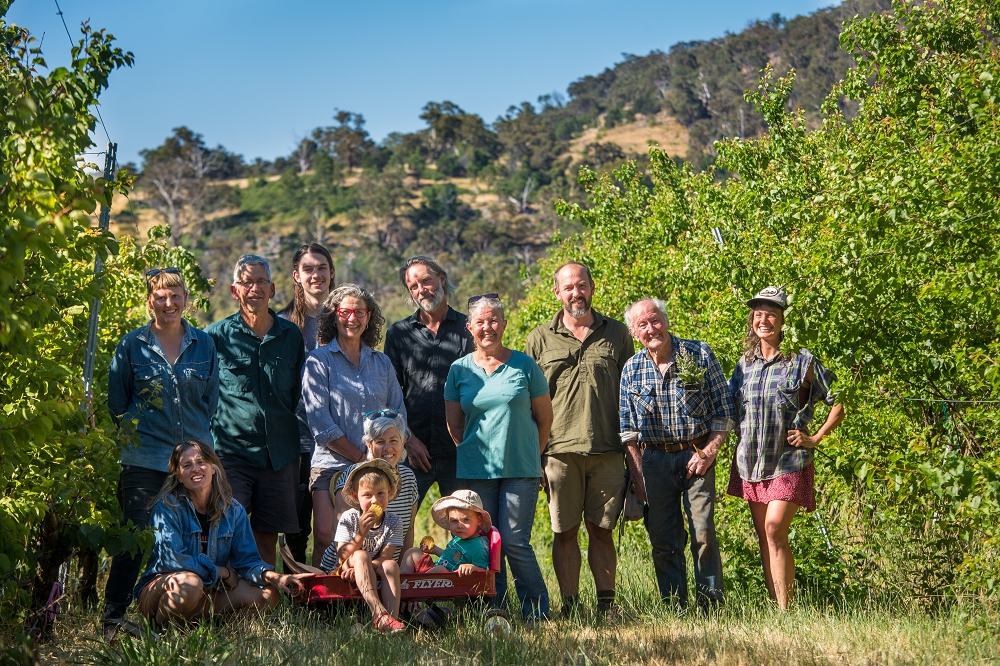
Benefits for the farmer
A major benefit of organic certification is that it gives farmers access to markets that demand certification for organic produce. The wholesale market in Melbourne is one.
For micro-businesses that can sell practically all their produce to people they know, this isn’t an issue. But if you’re producing so much that you need to sell into markets that can handle larger quantities, then organic certification can be a definite advantage.
Another huge benefit in our case is that members on the farm can collaborate freely. If some enterprises were not certified, we’d have to be very fussy about keeping our businesses separate, to make sure we’re meeting the Organic Standards.
One example is animals. Because the orchard is certified organic, any animals that graze in the orchard have to also be certified organic. If they’re not, a documented quarantine procedure must be gone through, even if the animals have been managed organically on the same farm.
This might seem like bureaucratic madness, but the point of the Organic Standards is to protect the integrity of the organic system. There are really strict rules about bringing non-organic elements into it, which we totally support.
Audits are also a great opportunity to spend time with someone who’s experienced in looking at lots of different organic farms. It’s definitely not part of an auditor’s role to give farming advice, but they’ll often make useful suggestions for solving farming problems.
So there are plenty of benefits from the farmer’s point of view, but how does it affect the people who eat our food?
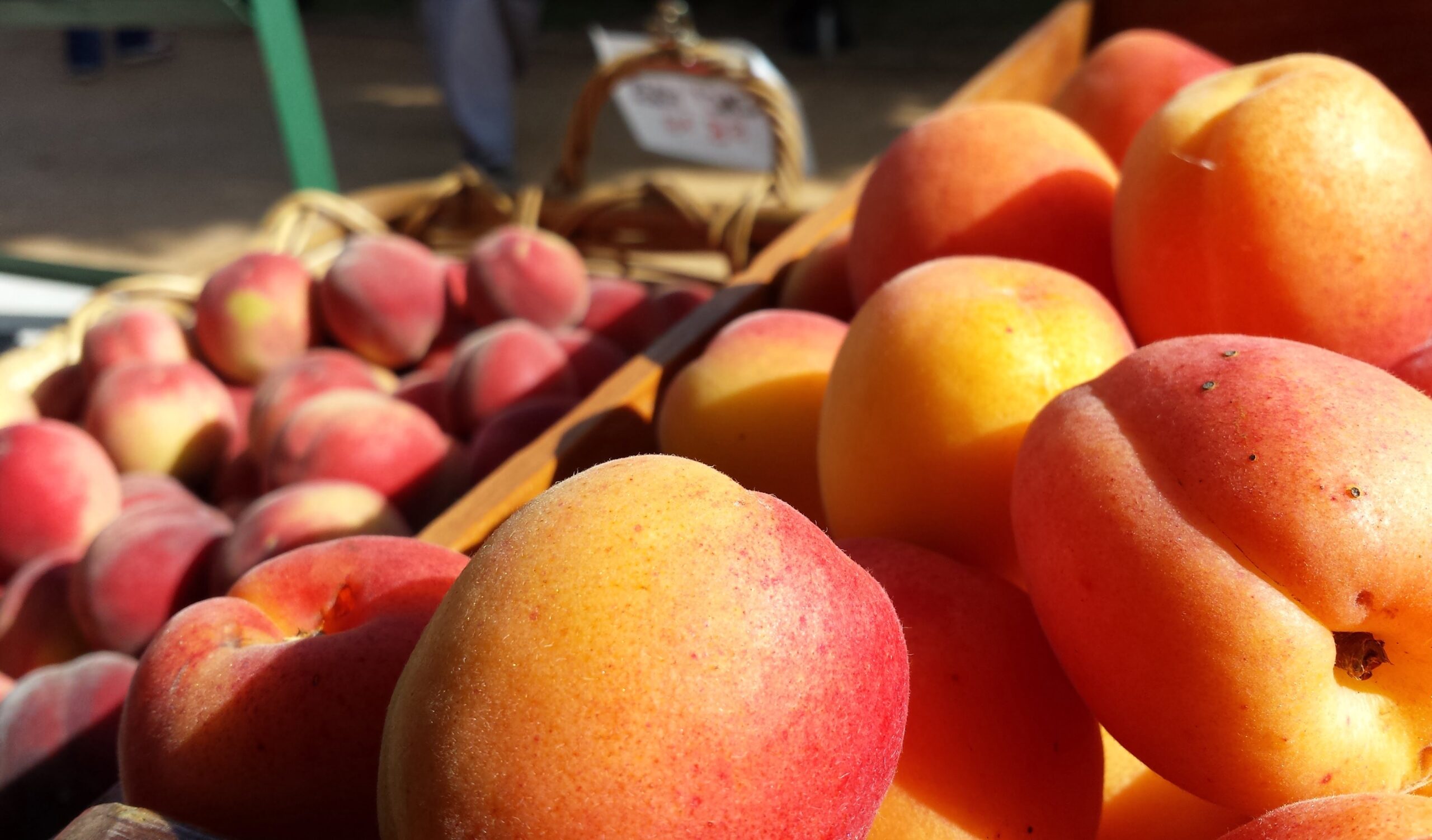
How does organic certification benefit eaters?
The main benefit for consumers is confidence. If produce is “certified organic” or “certified biodynamic”, then you can have confidence that it was grown according to Australian Organic Standards.
Unfortunately, the word “organic” is not owned by the certified organic industry. There’s also a plethora of other words that can end up being hellishly confusing, like regenerative, beyond organic, and sustainable.
Confused much? If a farmer is not certified organic or biodynamic, how do you know if they’re ridgy-didge?
If possible, buy your food directly from the farmer. This is one of the reasons that Farmers Markets are so awesome. You get to actually meet the farmer and ask them how they grow your food.
Some people argue that because the organic certification system is flawed, it’s not worth bothering with. It’s enough, they say, for producers to say they’re following the standards.
We disagree!
Certification may not be perfect, but it’s the best system we’ve got at the moment. We’re mates with lots of other small farmers who have chosen not to get certified for a whole range of reasons. That’s what suits their business, and we respect their decisions.
But we’ve also stood next to other growers at farmers’ markets who claim they’re ‘organic’ just because they’re not using insecticides. Meanwhile, they’re still merrily using Roundup to kill their weeds, not realising that they’re impacting the health of their soil and their produce.
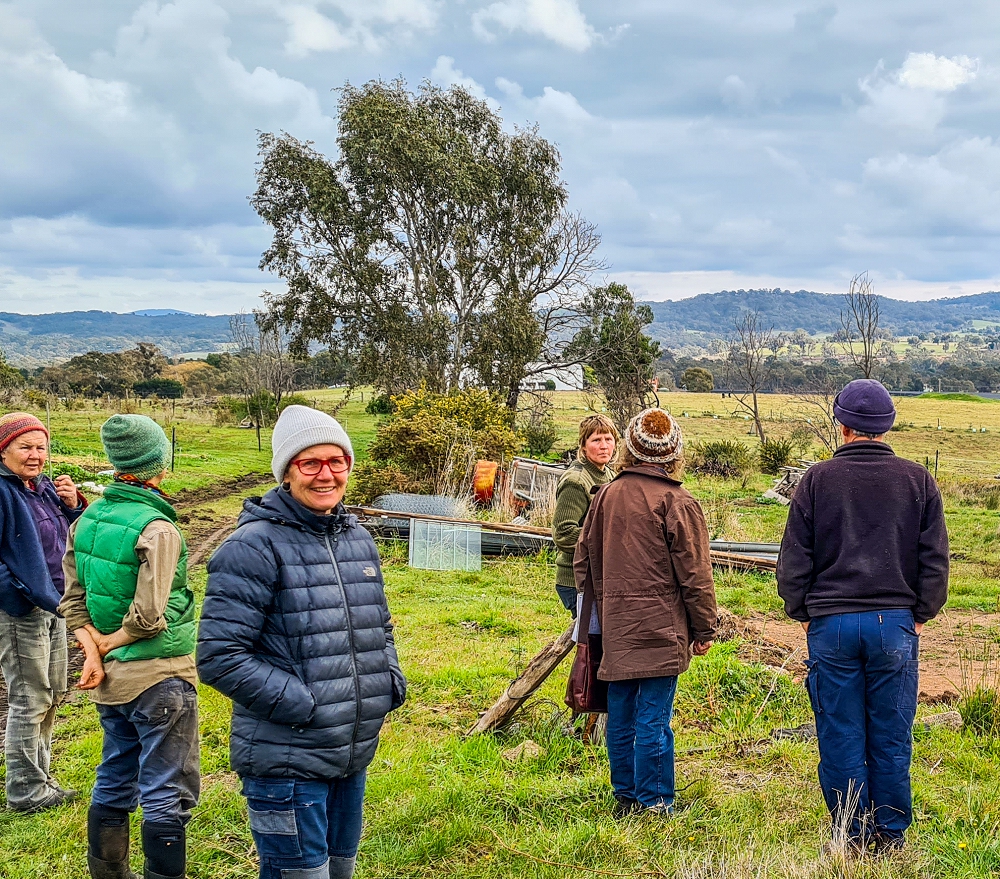
The downsides of certification
One of the main problems with certification is that it’s expensive. Both the farmer and the consumer end up paying more for the security that comes with certification. In fact, one of the reasons we set up the co-op was to look at ways for sharing these costs.
It’s also very bureaucratic. We have to demonstrate that we understand and are complying with EVERY part of the Organic Standards.
It also takes time, especially when you’re first getting your documentation systems set. It’s important to allow for easy reporting and traceability for the audit, but this is just good business practice anyway. Once you’re set up and keeping good records, it really only takes half a day each year for the audit.
On balance, we still feel the benefits outweigh the costs.
Related Articles
Fruit tree leaves: bonus or problem?
Should you let the leaves from your fruit tree stay on the ground in autumn, or are you just asking for trouble? We’ll help you decide.
Should you spray your fruit trees in autumn?
Spraying fruit trees should always be kept to a minimum to protect soil health, but sometimes a spray in autumn is the right thing to do.
Natural fertility for fruit trees in Autumn
Autumn is a great time to apply some natural fertility to your fruit trees before they go to sleep for the winter.
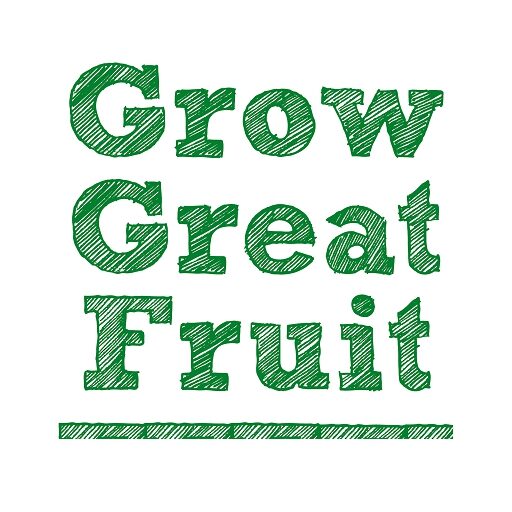
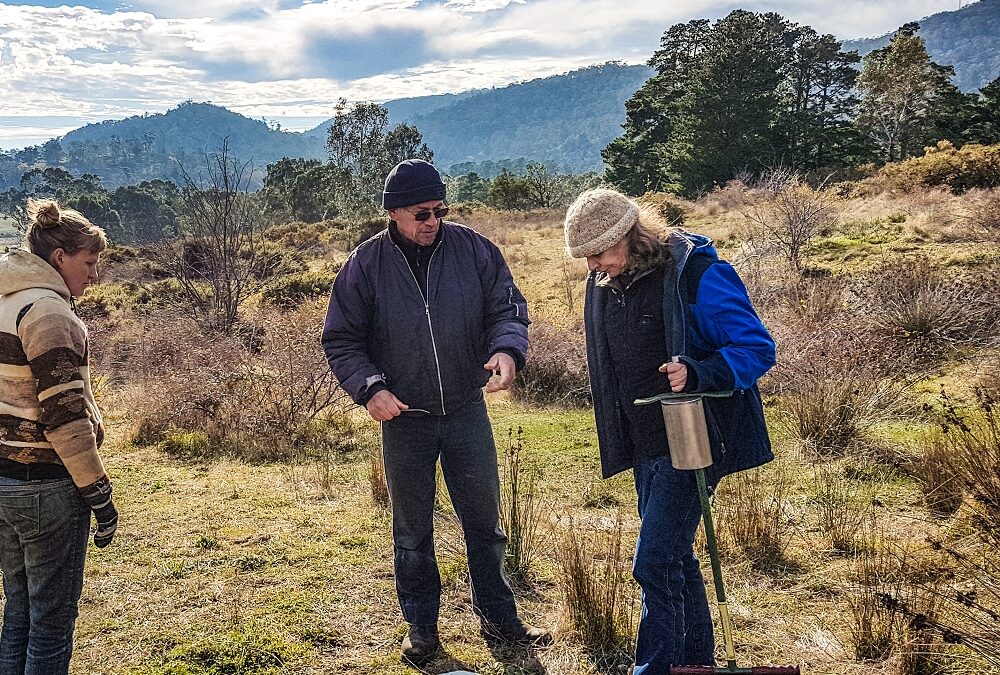
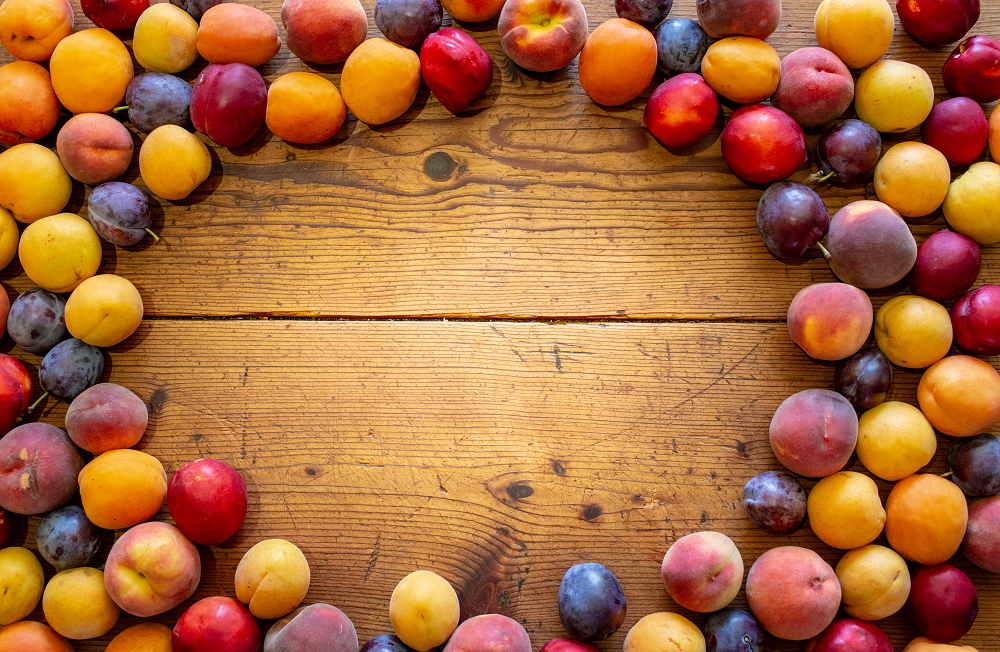
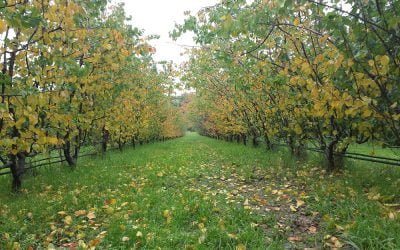


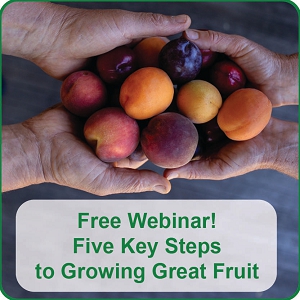
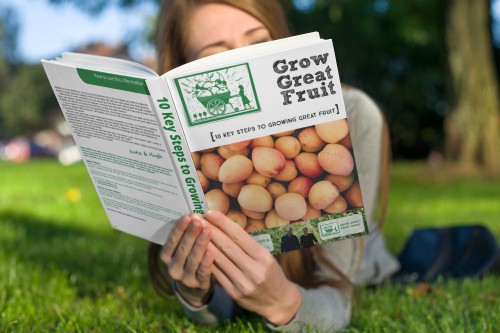
I’m very pleased to discover this web site. I need to to thank you for
your time for this wonderful read!! I definitely loved every bit of it and I have you book-marked to check out new things in your web site.
One of the other downsides of organic certification is that it may not actually regenerate the soil. Many organic croppers, in particular, use heavy tillage to manage weeds – which is less than ideal for soil healthy. Organic certification has many advantages but to take it to the next level we probably need a “regenerative organic” certification